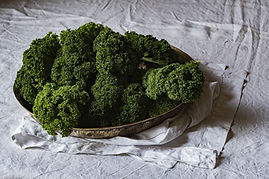
TIPS FOR OPTIMUM BONE HEALTH
Even when adult, bone growth is not static. Bone is a dynamic tissue that is constantly being broken down by specialist cells called ‘osteoclasts’ and remade by cells called ‘osteoblasts’. Many nutrients are needed for the manufacture of bone tissue including Calcium, Magnesium, Vitamin D, Vitamin K, Boron and protein. For optimum bone health we need exercise, to stimulate osteoblast activity, and an adequate supply of essential nutrients.
Most people pay particular attention to bone health during childhood, when bones are growing, and as we age because we know that bone density diminishes. However we need to pay attention to bone health throughout our life.
Bone density begins to reduce after the age of about 30. The denser our bones are at this point, the easier it is to retain a healthy density into old age.
![skeletondancing[1].jpg](https://static.wixstatic.com/media/f12005_fa91228241e34255b94f551de6e20406~mv2.jpg/v1/fill/w_297,h_315,al_c,q_80,enc_avif,quality_auto/skeletondancing%5B1%5D.jpg)

Eat your greens
Don’t rely on dairy for your bone health. For optimum bone health we need, among other things, a balanced amount of Calcium and Magnesium. Plant foods, in particular green leafy veg, naturally contain this balance. Animal milks contain a disproportionately high amount of Calcium compared to Magnesium. Recent studies have shown that neither a diet high in calcium or taking a Calcium supplement alone made any significant difference to fracture risk. The USA consumes the average highest amount of dairy products worldwide, yet they also have the highest rates of osteoporosis. It is much better to focus your attention on consuming a plant-based, whole food diet and leading a healthy, active, lifestyle in order to achieve optimum bone health.
![Picture_004[1].jpg](https://static.wixstatic.com/media/f12005_5488a67c98794a2ab56635e46807ae09~mv2.jpg/v1/fill/w_95,h_179,al_c,q_80,usm_0.66_1.00_0.01,enc_avif,quality_auto/Picture_004%5B1%5D.jpg)
Use full fat dairy products not fat reduced.
Vitamin D is a fat soluble vitamin found mainly in animal products. It is essential for the absorption and utilization of Calcium. Our body can make Vitamin D when we expose our skin to sunlight. In the UK we struggle to have sufficient sun exposure for us to make enough Vitamin D so we need to obtain some from our diet. When the fat is removed from dairy products the Vitamin D and other fat soluble nutrients are removed with it. This means that we can absorb very little of the Calcium from the milk.
![dairy-productsimage[1].jpg](https://static.wixstatic.com/media/f12005_0a7f4edcb20746c9940a9e8519686b5c~mv2.jpg/v1/fill/w_284,h_207,al_c,q_80,usm_0.66_1.00_0.01,enc_avif,quality_auto/dairy-productsimage%5B1%5D.jpg)

Take a bone health supplement
For those wishing to supplement their diet there are products available that contain proportionate levels of nutrients needed for bone health. These are considered to be far more effective than taking calcium alone. Look for a supplement that contains D3. It has been found to be more effective than artificially produced D2. K2 and Boron are also important nutrients for bone health.
Higher Nature Kids Growing Bones, Cytoplan Bone Support
Lamberts Ostioguard, Viridian Bone Complex

Eat flax seeds
Not only are flax seeds a good source of omega 3 and fiber, they also contain phytoestrogens. Phytoestrogens are plant substances which are similar to oestrogens; they have many benefits for hormonal health, as well as bone health. Oestrogen has a protective effect on bone density, which is why women are more at risk of osteoporosis or low bone density after the menopause. Adding in 1-2 tablespoons of ground flax seeds into your diet per day is an easy way to boost your phytoestrogen intake. If you find this difficult you may wish to try a flax supplement Such as Lamberts Flax Seed oil.
Cut out sugar and reduce carbohydrates.
Sugar, including the sugar obtained through the breakdown of carbohydrates, raises the acidity level of your blood. In order to neutralize the acid and maintain a healthy blood pH your body needs an alkaline substance. The Calcium and Magnesium in our bones are alkaline and our blood stabilizes its pH by absorbing these minerals from our bones.
Sugar interferes with our synthesis of vitamin D and increases the amount of Vitamin D, Magnesium and Calcium excreted via our kidneys.
![83b17611-9bd7-4a3d-81e9-2fac82f6ac65[1].](https://static.wixstatic.com/media/f12005_c949c0fce00b4419bdb51ce3ea287ec4~mv2.jpg/v1/fill/w_223,h_164,al_c,q_80,usm_0.66_1.00_0.01,enc_avif,quality_auto/83b17611-9bd7-4a3d-81e9-2fac82f6ac65%5B1%5D_.jpg)
![No-sugar[1].jpg](https://static.wixstatic.com/media/f12005_4a87e3ff4cdc4d7e8973db8669ce0ffa~mv2_d_3046_2630_s_4_2.jpg/v1/fill/w_182,h_156,al_c,q_80,usm_0.66_1.00_0.01,enc_avif,quality_auto/No-sugar%5B1%5D.jpg)
Avoid processed foods
Processed foods are not only typically high in sugar, trans-fats and other blood acidifying components, but they replace more nutritionally dense foods which would help to supply nutrients essential bone health.

Get outside and embrace the sun
(safely)
Vitamin D is produced by the body in response to sun light. If you are unable to get outside enough or have a darker skin tone in a cold country you are likely to be deficient. Vitamin D contributes to normal absorption and utilization of calcium and phosphorus, and is required for bone health. Ensure that you are in sunlight with exposed skin for a minimum of 20 minutes per day. If you are unable to do this it may be wise to consider a supplement of Vitamin D3.
Vitamin D link

Exercise Regularly
Exercise increases osteoblast activity leading to denser bones. Just a 20 minute brisk walk daily has been shown to make a significant impact on bone density. If you exercise outside you can get your sun exposure at the same time.


